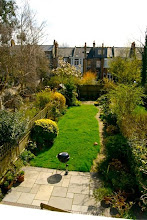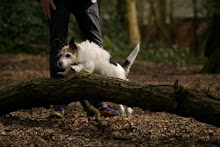

I'm talking at the Sunday Times Oxford Literary Festival at Christ Church on Saturday (March 31st, 12 noon; very much hoping that some blog readers might be coming).
Oxford is where I spent some of my childhood -- mostly very happy years, though also shadowed with several darker episodes, when my father's mental health was at its most fragile -- and Christ Church is a place that I associate with Lewis Carroll and Alice in Wonderland. It was here, my father told me, that Carroll -- or rather, Charles Dodgson, a mathematics don at the college -- had written his stories of Alice; and so when I went there with my sister, to the gardens and meadow, I half-imagined that we might glimpse the White Rabbit disappearing through a little gate, or even Alice herself, slipping just out of sight. My father was an academic at a different college, so Christ Church felt like foreign territory, which made it more magical, but I do also think of it as as a locked doorway into a past that contained moments of madness and incoherence, as well as joy. Like Lewis Carroll, my father loved riddles and clues and codes, but was also troubled by them, when his mind was at its most tormented.
As a child, I was as disturbed by the Alice stories as I was intrigued by them; their unsettling strangeness more frightening than the Narnia books that comforted me. Wonderland is a dangerous place to visit -- the pool of tears in which Alice nearly drowns, the ferocious Queen, the lunacy of the Mad Hatter's Tea Party -- but I look forward to returning to Oxford, and searching again for that elusive door into a forbidden garden...










